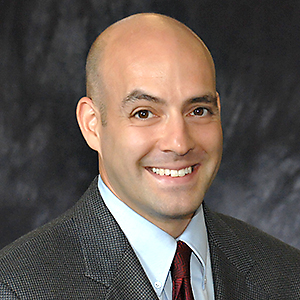What Does the ICC Think of America's Torture Investigations?
As the final year of the Obama administration approaches, the advocacy organization Human Rights Watch is stepping up its campaign for the U.S. government to provide accountability for past detention and interrogation practices:
As the final year of the Obama administration approaches, the advocacy organization Human Rights Watch is stepping up its campaign for the U.S. government to provide accountability for past detention and interrogation practices:
The US government has not adequately accounted for these abuses. It has an obligation under international law to prosecute torture where warranted and provide redress to victims, but it has done neither. No one with real responsibility for these crimes has been held accountable and the government has actively thwarted attempts on the part of victims to obtain redress and compensation in US courts.
The Obama administration asserted that it conducted a criminal investigation of the CIA program through a Department of Justice inquiry led by a career prosecutor, Assistant US Attorney John Durham. The Durham investigation closed on August 30, 2012 without bringing any criminal charges. The apparent failure of the investigation to question current or former detainees undercuts any claims that it was thorough or credible.
HRW's latest report, No More Excuses, summarizes the evidence of criminal conduct and surveys the history of U.S. investigations and inquiries. But the report also focuses on international efforts to provide accountability, including at the International Criminal Court (ICC). This ICC angle deserves particular attention; there remains a small but real possibility that the ICC will attempt to exercise jurisdiction over—at least a limited subset of—alleged U.S. detention abuses.
ICC scrutiny of U.S. detention practices would almost certainly come through its broader ongoing examination of the situation in Afghanistan. That examination has focused largely on potential crimes by Taliban and Afghan government forces, but the Office of the Prosecutor (OTP) has also made clear that it is considering some conduct by international forces in Afghanistan. The latest update on the preliminary examination came last month, when the OTP released its annual report on preliminary examinations. As I've documented elsewhere, these annual reports have become increasingly specific regarding U.S. behavior—a development that has alarmed U.S. officials. The OTP appears focused in particular on U.S. abuse of detainees in Afghanistan between 2003 and 2004.
The ICC's attention to U.S. practices is embedded in its much broader consideration of the situation in Afghanistan, which is an ICC member. The OTP has now decided that there is a reasonable basis to conclude that a range of crimes under the jurisdiction of the court have been committed in the country. That means that the preliminary examination has shifted to determining whether likely cases would be admissible. And that inquiry has two separate prongs: gravity and complementarity. Slowly and somewhat elliptically, the OTP has begun to spell out its thinking on both.
Before considering the OTP's analyses of these prongs as they relate to U.S. conduct, it's important to recall the distinction between an admissibility analysis of the situation in Afghanistan as a whole and the admissibility of specific categories of cases. [Kevin Jon Heller has an excellent post on this point.] As indicated, the prosecutor is considering several categories of criminal conduct in Afghanistan by different actors. For each of these categories, the OTP is now examining admissibility. It would be perfectly reasonable for the prosecutor to conclude that a certain group of cases would not be admissible while seeking to open a formal investigation of the overall situation. Of course, the more potential cases that are deemed out of bounds, the greater the chance the prosecutor would decline a full investigation.
Returning to the OTP's analysis of U.S. conduct, this year's report indicated that, although the office is still attempting to understand the scale of the alleged abuse of detainees, its language evinces little doubt that alleged crimes by U.S. personnel would meet the gravity threshold. "The infliction of 'enhanced interrogation techniques,'" it wrote, "applied cumulatively and in combination with each other over a prolonged period of time, would have caused serious physical and psychological injury to the victims." Torture is widely viewed as one of the most serious international crimes, and there is little reason to doubt that even a few cases of torture by U.S. personnel would cross the gravity threshold.
The complementarity prong is much more complicated. Here, the question is whether relevant national judicial systems have investigated the conduct that the ICC is considering. This year's report briefly and matter-of-factly summarizes U.S. investigations of detainee abuse and torture, including by the Justice and Defense Departments. It notes without comment that Attorney General Eric Holder declined to prosecute any abuses by CIA personnel and that Defense Department investigations have not moved higher than brigade commander level.
This sparse summary leaves unanswered the question of whether the overall U.S. response represents a failure to prosecute the alleged crimes that the ICC has identified. It is clear that there is an ongoing, if quiet, dialogue between the OTP and U.S. officials regarding its investigations of misconduct in Afghanistan. The OTP is no doubt hoping that the United States will demonstrate more clearly that it has prosecuted or at least seriously investigated the criminal activity in question. But the OTP's latest report makes clear that the office is not yet convinced. The prosecutor's office appears particularly focused on the U.S. failure to address high-level responsibility for its interrogation practices. Its discussion of the Holder inquiry and the DOD investigations suggests that the OTP is viewing U.S. misconduct in Afghanistan not as a localized problem but as a manifestation of a broader policy. Viewed as such, it's tough to argue that the United States has met the complementarity threshold. When and if the OTP seeks to open a full investigation in Afghanistan, it may still attempt to exercise jurisdiction over U.S. officials.




.jpg?sfvrsn=e1000919_5)
